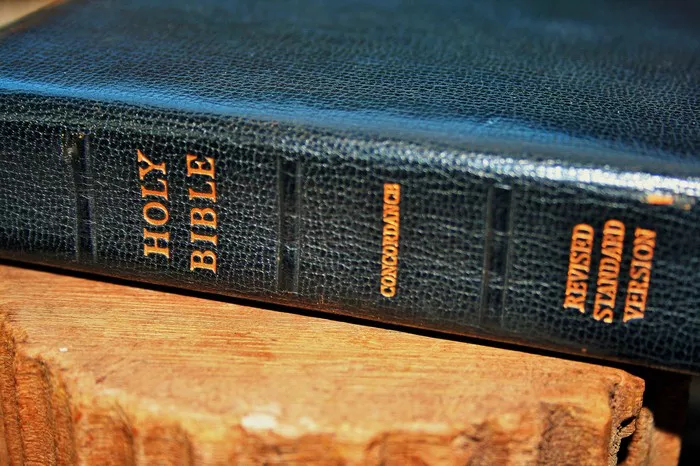In the realm of religious texts, few hold as much sway and intrigue as the Book of Genesis. Its opening lines, “In the beginning, God created the heavens and the earth,” have echoed through centuries, shaping the beliefs of billions worldwide. Yet, despite its profound impact, the exact time of Genesis‘s writing remains shrouded in historical mystery. Scholars have long grappled with questions surrounding its composition, seeking to uncover the era and circumstances in which this foundational text took shape.
Exploring Ancient Origins
Genesis, the first book of the Hebrew Bible and the Christian Old Testament, stands as the cornerstone of Judeo-Christian faiths. It serves as a vital repository of creation myths, genealogies, and narratives central to the Abrahamic traditions. However, pinpointing its precise origins proves challenging, as the text lacks clear markers of authorship and date.
Traditionally, religious belief ascribes the authorship of Genesis, along with the other four books of the Torah, to Moses. According to this view, Genesis would have been written during the Israelites’ sojourn in the wilderness, likely around the 13th century BCE. This attribution stems from ancient Jewish and Christian traditions, which ascribe divine inspiration to Moses and depict him as the transmitter of God’s law.
Critical Perspectives and Scholarly Debate
Despite the enduring influence of the Mosaic authorship hypothesis, modern biblical scholarship offers a more nuanced perspective. The documentary hypothesis, pioneered by scholars such as Julius Wellhausen in the 19th century, posits that Genesis is a composite work, composed of multiple sources over centuries.
According to this theory, known as JEDP (Jahwist, Elohist, Deuteronomist, and Priestly), Genesis incorporates diverse literary strands reflecting different historical periods and theological agendas. The Jahwist (J) source, characterized by its use of the divine name Yahweh, likely originated in the southern kingdom of Judah around the 10th century BCE. The Elohist (E) source, which employs the term Elohim for God, is associated with the northern kingdom of Israel and dates to the 9th century BCE. Meanwhile, the Priestly (P) source, emphasizing ritual and genealogy, likely emerged during or after the Babylonian exile in the 6th century BCE. Finally, the Deuteronomist (D) source, with its emphasis on law and covenant, is thought to have been composed around the time of King Josiah’s reforms in the 7th century BCE.
Archaeological Insights and Historical Context
Beyond textual analysis, archaeological discoveries shed light on the social and cultural milieu in which Genesis may have been written. Excavations in the ancient Near East unearthed clay tablets, inscriptions, and artifacts that offer parallels to the narratives and motifs found in Genesis.
For instance, the Babylonian creation myth Enuma Elish shares striking similarities with the Genesis creation account, suggesting possible cultural exchange or shared oral traditions. Likewise, the Code of Hammurabi, a Babylonian law code dating to the 18th century BCE, bears resemblance to the legal codes and principles outlined in Genesis and the Torah.
Dating Genesis: A Complex Puzzle
Amidst this array of evidence and scholarly theories, dating the composition of Genesis remains a complex puzzle. While traditional views place its origins in the second millennium BCE during the time of Moses, critical scholarship favors a later date, spanning from the 10th to the 6th centuries BCE.
The convergence of literary, archaeological, and historical evidence suggests that Genesis emerged over a protracted period, reflecting the cultural, religious, and political dynamics of ancient Israel and its neighboring civilizations. Rather than a singular event or authorship, Genesis represents a tapestry of traditions, beliefs, and narratives woven together over centuries.
Implications for Faith and Understanding
The debate over the dating of Genesis extends beyond scholarly curiosity, touching on fundamental questions of faith, interpretation, and historical truth. For believers, the divine inspiration and timeless relevance of Genesis transcend its historical origins, grounding faith in the enduring truths it proclaims.
At the same time, a nuanced understanding of Genesis’s composition enriches our appreciation of its literary and theological complexities. Viewing Genesis as a product of its historical context invites deeper engagement with its themes of creation, covenant, and human destiny, fostering dialogue between religious tradition and modern scholarship.
Conclusion
In the quest to unravel the mysteries of Genesis, scholars navigate a labyrinth of textual analysis, archaeological discoveries, and interpretive frameworks. While the exact time of its writing remains elusive, the enduring legacy of Genesis endures, shaping religious belief, cultural identity, and intellectual inquiry.
Whether viewed through the lens of divine revelation or historical inquiry, Genesis continues to inspire wonder, contemplation, and debate. Its timeless narratives speak to the human condition, inviting readers to ponder the mysteries of existence, the nature of God, and the origins of creation. In this ongoing exploration, Genesis remains not only a foundational text of faith but also a testament to the enduring quest for meaning and understanding in the ancient and modern world.


